All times listed are in Central European Summer Time (CEST)
TUESDAY, 26 APRIL 2022
| 13:30-15:00 |
PS1: Cybersecurity as Enabler for Managing the Era of Cloudification, Softwarization an Artificial Intelligence Room Magnólia Speakers:
Marc-Oliver Pahl, IMT Atlantique, France
Stuart Clayman, University College London, UK
Gabi Dreo Rodosek, Bundeswehr University Munich, Germany
Aiko Pras, University of Twente, The Netherlands
|
Abstract: Most of our virtual and also physical ambiances consist of distributed networked systems. Managing networks and services therefore affects not only computer and communication systems but also Cyber-Physical Systems such as IoT devices orchestrating private, public, and commercial spaces such as industry 4.0 sites.
While the underlying softwarization and connectivity bring lots of opportunities, security remains the central challenge. Cyberattacks such as the Colonial Pipeline incident, solarwinds, or continuous attacks with ransomware to hospitals and other critical infrastructures illustrate this.
In this panel, starting from the network and service management methodology, we will discuss cybersecurity implications, challenges, and solutions. We will cover different aspects, applications, points of views and solution methodologies. Possible discussion points are cybersecurity awareness, methodologies, and security-by-design in the network and service management community, and how our community with its rich methodology and experience can support the cybersecurity community.
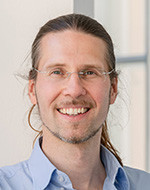 Marc-Oliver Pahl
Marc-Oliver Pahl
Bio: Prof. Dr. Marc-Oliver Pahl heads the Chair of Cybersecurity for Critical Networked Infrastructures (https://cyberni.fr/) at IMT Atlantique in Rennes, France. He is an adjunct professor of Carleton University in Canada. Marc-Oliver also heads the IoT Smart Space research team (https://s2o.net.in.tum.de/) at the Chair for Network Architectures and Services at Technical University of Munich.
Marc-Oliver is Vice President of the German Chapter of the Association for Computing Machinery (ACM) (https://germany.acm.org/). He heads the Future Education activities of the German-French Academy for the Industry of the Future (https://future-industry.org/).
Marc-Oliver’s research focus is on a holistic approach to cybersecurity. He works on security-by-design, anomaly detection, human-in-the-loop, and automation. His goal is making cybersecurity manageable, resulting in highly resilient and reliable systems. Marc- Oliver publishes regularly in the network and service management and security communities.
Marc-Oliver is an experienced teacher and an eLearning pioneer. He holds several teaching- related awards. Marc-Oliver developed various teaching concepts and teaches continuously at university level since 2004. Besides specialized audience, he continuously runs activities for fostering the dialog between science and society, including https://talk.cybercni.fr, https://future-iot.org, and https://being-human-with-algorithms.org.
Stuart Clayman
Bio: Stuart Clayman received his PhD in Computer Science from University College London in 1994. He is currently a Principal Research Fellow at UCL EEE department, and he has worked as a Research Lecturer at Kingston University and at UCL. He co-authored over 60 conference and journal papers. His research interests and expertise lie in the areas of software engineering and programming paradigms; distributed systems; virtualised compute and network systems, network and systems management; sensor systems and smart city platforms, and artificial intelligence systems. He is looking at new techniques for large-scale sensor systems in Industry 4.0, and at end-to-end systems for better video delivery. He also has extensive experience in the commercial arena undertaking architecture and development for software engineering, distributed systems and networking systems. He has run his own technology start-up in the area of NoSQL databases, sensor data, and digital media.
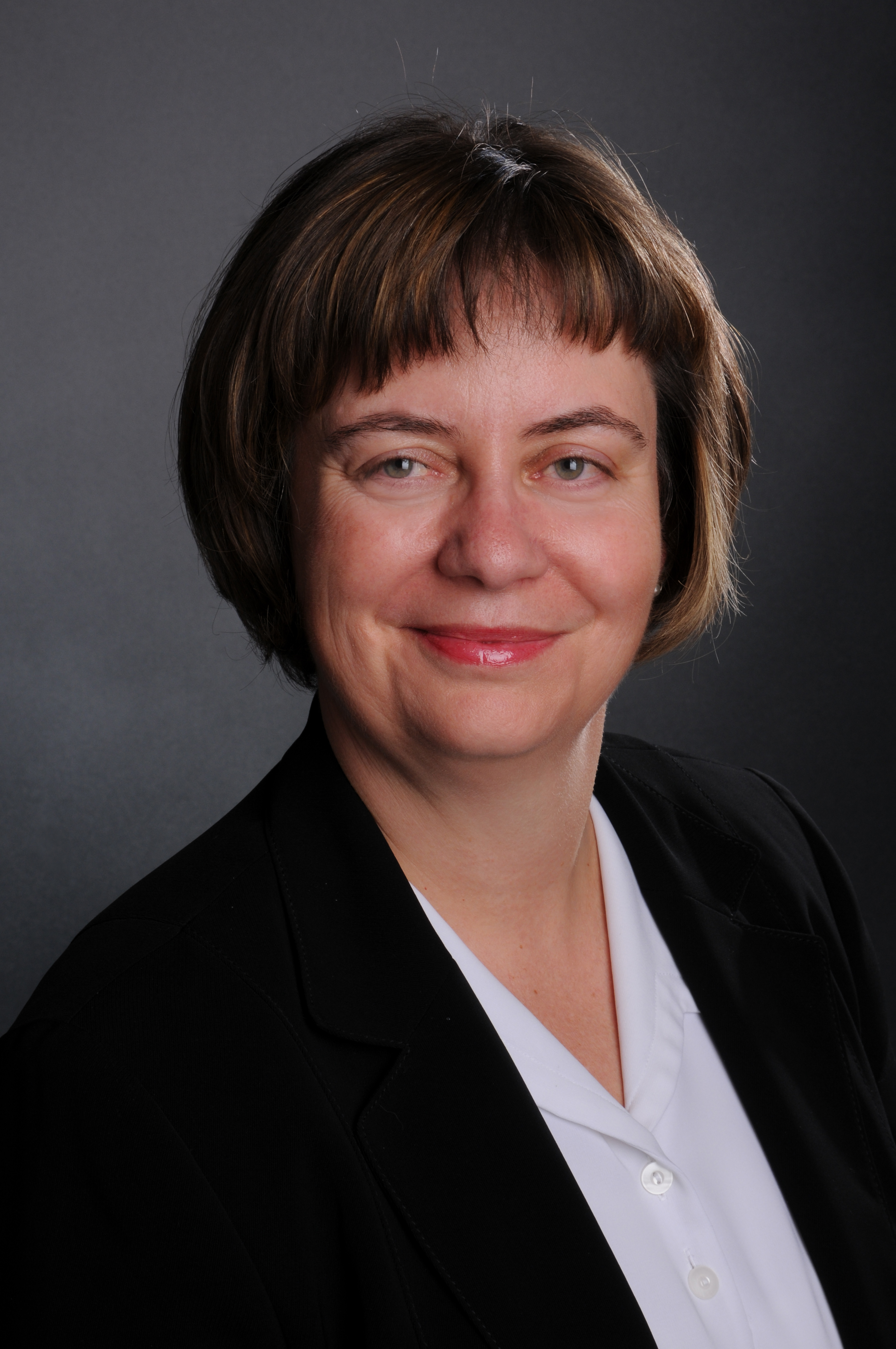 Gabi Dreo Rodosek
Gabi Dreo Rodosek
Bio: Prof. Dr. Gabi Dreo Rodosek is the Executive Director of the Research Institute CODE (Cyber Defence), holds a Chair for Communication Systems and Network Security at the Bundeswehr University Munich, is the coordinator of the EU H2020 project CONCORDIA and has several supervisory and advisory mandates of various companies such as Giesecke+Devrient GmbH, BWI GmbH and Siltronic AG. She is furthermore a member of the WEF Global Future Council on Cybersecurity, member of the Digital Council of the Ministry of Defence, member of the Board of Directors of the Munich Security Network, member of the Cyber Security Advisory Council of Lufthansa, member of the Data Protection Advisory Council of the Deutsche Telekom. Prof. Dreo studied computer science at the University of Maribor, Slovenia, was awarded a PhD with summa cum laude in 1995 from the Ludwig-Maximilians University in Munich as well as a habilitation in 2002 from the Ludwig-Maximilians University in Munich. In 2016 she was awarded the European Medal from the Bavarian Minister for European Affairs and International Relations Dr. Beate Merk.
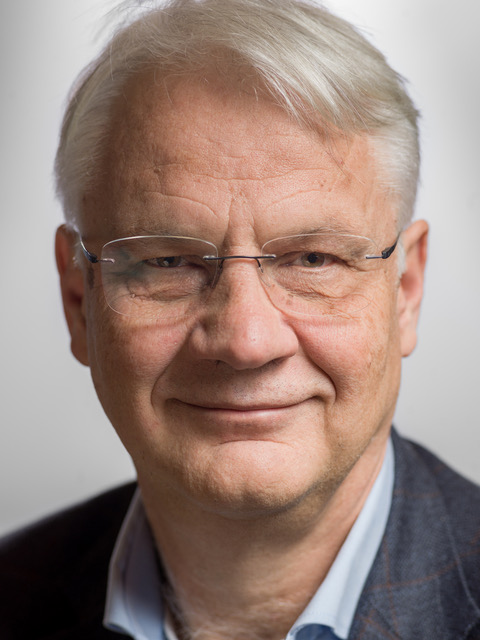 Aiko Pras
Aiko Pras
Bio: Aiko Pras is full professor in the area of Network Operations and Management with a focus on Internet Security at the Faculty of Electrical Engineering, Mathematics and Computer Science of the University of Twente, the Netherlands. He is member of the Design and Analysis of Communication Systems Group (DACS). In 1995 he received a Ph.D. degree from the same university for his thesis titled "Network Management Architectures" and in 2013 he was appointed as full professor. In 2016 he has been honoured with the IFIP/IEEE “Salah Aidarous Memorial Award” for providing unremitting service and dedication to the IT and Telecommunications Network Operations and Management community.
Aiko is interested in questions like Digital Independence and Internet security, with a research focus on DDoS attacks and DNS security. His approach is usually based on measurements.
He has been research coordinator of the EU Concordia project, which is one of the four Cybersecurity Competence Networks within Europe, "Beirat" of the CODE Cybersecurity research institute in München, member of the newly established "Samenwerkingsplatform cybersecurity kennis en innovatie" (the new dcypher), the ACademic Cyber Security Society (ACCSS) as well as scientific director of the Twente University Centre for Cybersecurity Research (TUCCR).
He has chaired the IFIP Technical Committee on "Communications Systems"(IFIP-TC6, 2013-2017), as well as the EU Future Internet cluster (2012-2014). He has been coordinator of the European Network of Excellence on "Management of the Future Internet" (FLAMINGO, 2012-2017).
He has participated in many European and Dutch research projects, as member, evaluator and as reviewer. He has contributed to research and standardization activities as a founding member of the Internet Research Task Force (IRTF) Network Management Research Group (NMRG) and as RFC author. He has been editor of the IEEE Communications Magazine series on "Network & Service Management", associate editor of the International Journal of Network Management (IJNM), and Editorial Advisory Board member for the Journal of Network and Systems Management (JNSM). He is Steering Committee member of the IFIP/IEEE NOMS and IM Symposia (NISC), CNSM, IFIP Networking as well as TMA.
| 15:30-17:00 |
PS2: Managing for Green: Management for sustainable and energy-efficient networks Room Magnólia Speakers:
Hesham ElBakoury, Futurewei Technologies, USA
Franco Davoli, University of Genoa, Italy
Gianmarco Baldini, European Commission, Belgium
Alex Clemm, Futurewei, USA
Amina Boubendir, Airbus Defence and Space, France
|
Abstract: Reducing carbon footprint and improving energy efficiency is becoming of increasing importance for many industries, which include network operators as well as users and providers of networking services. A large role in reducing the carbon footprint falls on network technology itself as well as the management of those networks. Techniques that promise energy efficiency gains include techniques that power down equipment that is under-utilized, that optimize paths and function placement for energy-efficiency criteria, and that provide instrumentation to provide greater visibility into power consumption and, as a consequence, raise energy- awareness. At the same time, Moore's law that has automatically provided dramatic power efficiency gains in the past is coming to an end, whereas the demand for communication services and growth in communications volume continue to explode. This raises the question, how will this tug-of-war play out, how can the demands and needs for more and better communications be reconciled with the necessity to reduce carbon footprint, and how can networking and management technology contribute to this? This is the subject of the panel, which will discuss these and related questions.
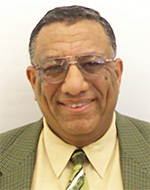 Hesham ElBakoury
Hesham ElBakoury
Bio: Hesham ElBakoury is an industry veteran with extensive background and expertise in IT/OT, and the architecture and design of Access, Carrier and Enterprise Networks. He held several positions in networking industry including Senior Principal Architect in Futurewei Technologies Inc focusing on advanced technology research and standards in the Access and Network Research Labs, and Chief System Architect for Hitachi Communications Systems and Nortel Networks. Mr. ElBakoury has served as keynote speaker for international conferences such as ICC, Globecom, ICNP, and participated in panels and served as a chair of several workshops of conferences around the globe. Mr. ElBakoury has been active in different standard groups including IEEE 802, IETF, ONF, MEF, SCTE, ITU, OIF, and IEEE 1916.1. He served as an editor for IEEE 1904.1 (SIEPON), and several CableLabs standards and Technical Reports. He has several publications and patents in the field of Networking.
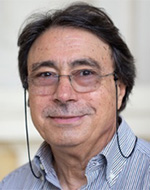 Franco Davoli
Franco Davoli
Bio: Franco Davoli is Professor Emeritus at the University of Genoa, Department of Electrical, Electronic and Telecommunications Engineering, and Naval Architecture (DITEN). His current research interests are in dynamic resource allocation in multiservice networks and in the Future Internet, mobile wireless (5G/6G) and satellite networks, multimedia communications and services, and in flexible, programmable and energy-efficient networking. He has co-authored over 380 scientific publications in international journals, book chapters and conference proceedings. In 2004 and 2011 he was Visiting Erskine Fellow at the University of Canterbury, Christchurch, New Zealand. He has been Principal Investigator in a large number of projects and has served in several positions in the Italian National Consortium for Telecommunications (CNIT), an independent organization joining 37 universities all over Italy. He was co-founder and Head, for the term 2003–2004, of the CNIT National Laboratory for Multimedia Communications, Naples, Italy, and Vice-President of the CNIT Management Board for the term 2005–2007. He is currently the Head of the CNIT National Laboratory of Smart and Secure Networks (S2N), based in Genoa, Italy, and coordinator of the H2020 5G PPP 5G-INDUCE project. He is a Life Senior Member of the IEEE.
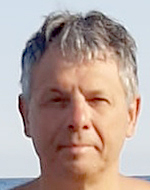 Gianmarco Baldini
Gianmarco Baldini
Bio: Gianmarco Baldini is currently a Senior Researcher/Project Manager in the Joint Research Centre of the European Commission. He received the Laurea degree in Electronic Engineering from the University of Rome,Italy in 1993 and his PhD in computer science at the University of Insubria,Italy in 2019. He has worked in the R&D departments in the field of wireless communications in Italy, Ireland and USA before joining the European Commission, Joint Research Centre (JRC) in 2007. In the JRC, he has worked in wireless communications, security, positioning, and machine learning and he has contributed to the formulation of European policies in the areas of radio frequency spectrum, road transportation, and cybersecurity. He is currently working on the European Radio Frequency spectrum policy and wireless communication technologies including 5G, energy efficiency of wireless networks and the application of Machine Learning/Artificial Intelligence to wireless communications.
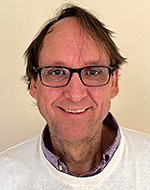 Alexander Clemm
Alexander Clemm
Bio: Dr. Alexander Clemm (alex@futurewei.com) is a Distinguished Engineer at Futurewei in Santa Clara, California. He has been involved in networking software and management technology throughout his career, most recently in the areas of high-precision networks and future networking services as well as network analytics, intent-based networking, service assurance, and telemetry. Alex has 60+ publications, 60+ issued patents, 13 RFCs, and several books; he has also been regularly serving on the OC and TPC of highly-regarded management and network softwarization conferences for many years (e.g., IM/NOMS, CNSM, and NetSoft). He holds an M.S. degree in computer science from Stanford University and a Ph.D. from the University of Munich, Germany.
 Amina Boubendir
Amina Boubendir
Bio: Dr. Amina Boubendir (amina.boubendir@airbus.com) is currently Head of Research Strategy and Development at Airbus Defence and Space. She promotes research and technology through development projects across Europe on 6G networks, Quantum computing, and LEO satellite constellations to overcome reliability, sovereignty, and sustainability challenges to secure communications. Amina holds a PhD in Networking and Computer Science and a Master Degree in Network Design and Architecture, both from Télécom Paris. She worked as a researcher and as a Research Projects Manager at Orange Labs in France from 2013 to late 2021. She was an expert member of the Orange experts’ community on networks of the future. Her research area is mainly the design and management of networks and services focusing on E2E network softwarization and automation. Amina has led a number of research projects internally within Orange and externally in collaboration with partners from industry and academia on the move towards network “servicification” through research topics like network openness, programmability and NFV, 5G and network slicing, zero-touch management, IoT, Edge computing and resource federation, and more recently 6G networks, co-leading the Orange 6G strategy. Amina has led activities within collaborative projects like 5GPPP MON-B5G, 6G flagship HEXA-X, and she was the project manager for the French ANR INTELLIGENTSIA project. She also managed B2B innovation projects on 5G for industrial verticals, namely the Energy, Railway, and Healthcare industries. Amina is a member of the IEEE Communications Society. She has co-authored 30+ publications and is involved in the network and service management community where she has served on technical program committees and as session chair of numerous IEEE and IFIP conferences and the associated workshops, like ICIN, NetSoft, NOMS, IM, CNSM, NoF, and CloudNet; as well as a reviewer of book editions and IEEE journal issues like TNSM, JNSM, JSAC, or JONS. She has also served as Associate technical Editor in the IEEE Communications Magazine.
THURSDAY, 28 APRIL 2022
| 09:00-10:30 |
PS3: Network Exposure and Edge Cloud in 5G Networks Room Magnólia Speakers:
Benedek Kovács, Ericsson, Hungary
Géza Szabó, Ericsson, Hungary
Balazs Sonkoly, Budapest University of Technology and Economics, Hungary
Péter Fazekas, Nokia-Bell Labs
István Komlósi, KUKA
|
Abstract: Edge computing in telecom, often referred to as Mobile Edge Computing, MEC, or Multi-Access Edge Computing, provides execution resources (compute and storage) for applications with networking close to the end users, typically within or at the boundary of operator networks. Edge computing can also be placed at enterprise premises, for example inside factory buildings, in homes and vehicles, including trains, planes and private cars. The edge infrastructure can be managed or hosted by communication service providers or other types of service providers. The main benefits edge solutions provide include low latency, high bandwidth, device processing and data offload as well as trusted computing and storage. (https://www.ericsson.com/en/edge-computing)
Network exposure, or service exposure within the network domain, means making network capabilities, such as data and network services, easily available for customers and partners to innovate on. Network exposure will be a necessity to meet the requirements of use cases for e.g. in IoT, XR, smart manufacturing and automotive sectors. Exposure is critical to achieve programmable networks that can communicate with all IoT devices, handle edge loads and introduce and monetize new 5G use cases and business opportunities. (https://www.ericsson.com/en/service-orchestration/network-exposure)
Edge computing and network exposure goes hand-in-hand. In this panel, we discuss how these new capabilities of 5G networks to expose certain functions to the user and the edge cloud can benefit from each other. How their usage can be exploited by industrial verticals? We discuss network exposure APIs on various layers. We discuss use cases that can be realized with them.
The panel will help industry players interested in adopting a 5G cellular wireless network to learn of the benefits of network exposure and edge computing from many aspects like the operator, the industry vertical and telco vendor’s point of view and also what can be the research directions for the academy.
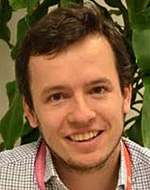 Benedek Kovács
Benedek Kovács
Bio: Benedek Kovács joined Ericsson in 2005 as a software developer and tester. Today he is expert in edge computing his work focuses on 5G networks and distributed cloud, as well as coordinating global engineering projects. Kovács holds an M.Sc. in information engineering and a Ph.D. in mathematics from the Budapest University of Technology and Economics (BME) in Hungary.
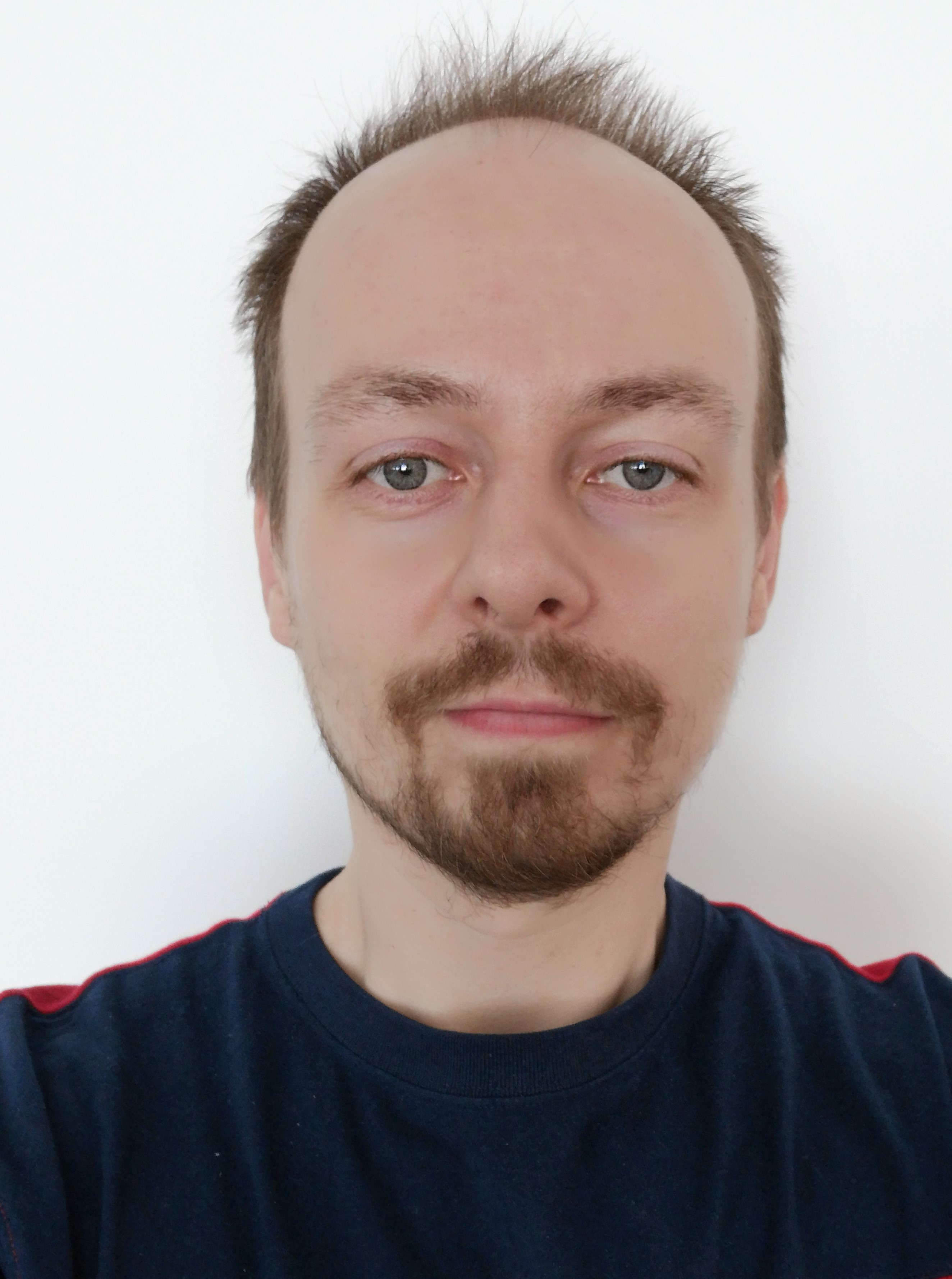 Géza Szabó
Géza Szabó
Bio: Géza Szabó joined Ericsson Research as an undergraduate student in 2005. He wrote his MSc thesis about comparing various application traffic classification methods in 2006. He holds a PhD in Informatics since 2011. Since 2017 he works in the field of Industrial 4.0 and evolves robot cells into cyber physical production systems via the help of 5G and AI. He is a delegate in 3GPP SA6 and the vice-chair of IEEE P2940 standardization group.
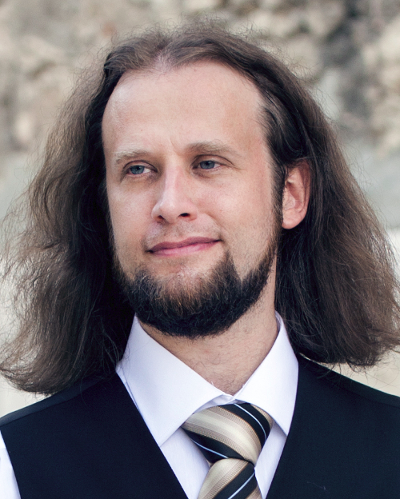 Balázs Sonkoly
Balázs Sonkoly
Bio: Balázs Sonkoly is an associate professor at Budapest University of Technology and Economics (BME) and he is the head of MTA-BME Network Softwarization Research Group. He received his Ph.D. (2010) and M.Sc. (2002) degrees in Computer Science from BME. He has participated in several EU projects (FP7 OpenLab, FP7 UNIFY, H2020 5G Exchange) and national projects. He was the demo co-chair of ACM SIGCOMM 2018, EWSDN'15,'14, IEEE HPSR'15. His current research activity focuses on cloud / edge / fog computing, NFV, SDN, and 5G.
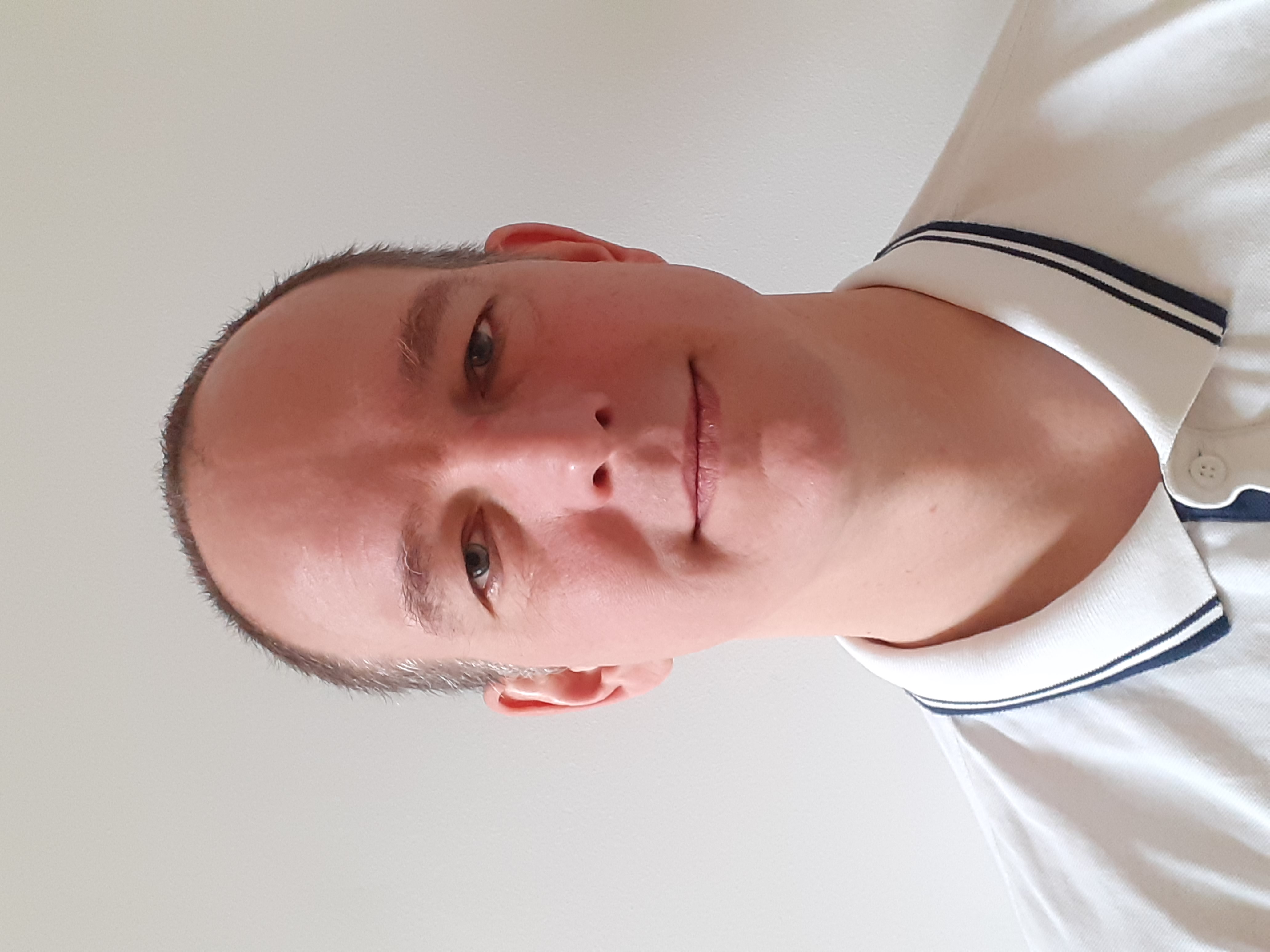 Péter Fazekas
Péter Fazekas
Bio: Péter Fazekas received his PhD from Budapest University of Technology and Economics, where he pursued a research carrier for 15 years. He lead academic and industrial cooperative research activities in the field of wireless and mobile communications, following through the evolution of cellular networks from 2G to 5G. He joined Nokia in 2017, where he was architecting cloud based core network solutions in large CSP engagements. Currently he is with Nokia Bell Labs, where he is working on network automation and orchestration, network slicing, applying cloud native technologies for telco networks in edge domains, in cooperation with technology teams of CSPs.
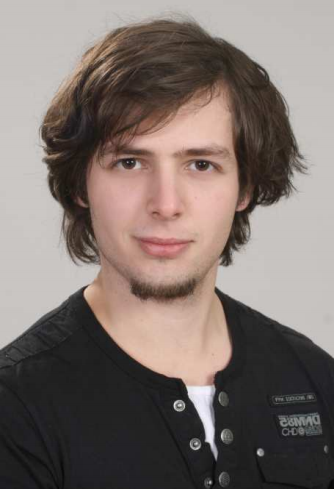 István Komlósi
István Komlósi
Bio: István Komlósi works as Principal Software Engineer for KUKA Robotics and is the lead architect of the mobile robot division in KUKA Hungary. He joined KUKA in 2015 as one of the founding members of the R&D department of KUKA Hungary and is an expert in industrial mobile robot systems. His main responsibilities are software architecture and design of KUKA mobile robot systems with respect to software technologies, industrial interfaces, communication technologies and integration into industrial processes. As cloud technologies and 5G gain more and more relevance in industrial applications, key areas of his focus are cloud robotics and 5G robotics.
| 13:30-15:00 |
PS4: A Glance into the Future Internet: Applications, Architectures, Protocols, and Intelligence Room Magnólia Speakers:
Mohamed Faten Zhani, ETS Montreal, Canada
Christian Jacquenet, Orange Innovation, France
John Kaippallimalil, Futurewei Technologies Inc., USA
Laurent Ciavaglia, Rakuten Mobile, France
Rui L. Aguiar, University of Aveiro, Portugal
|
Abstract: The goal of this panel is to lay out the key research directions pertaining to the Internet of the future. In particular, the panelists will shed the light on the different aspects that should be the focus of the academic and industrial community in order to revisit and evolve the Internet architecture and protocols. They will also discuss the key challenges to address to fully leverage in-network computing capabilities, Artificial Intelligence (AI) and Machine Learning (ML) techniques and integrate them into the core of the network in order to cater to the requirements of future applications.
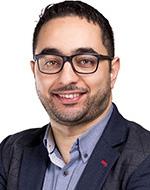 Mohamed Faten Zhani
Mohamed Faten Zhani
Bio: Mohamed Faten Zhani (ETS Montreal, Canada) is an associate professor with the department of software and IT engineering at l’École de Technologie Supérieure (ÉTS Montreal) in Canada. His research interests include future Internet architectures, cloud computing, network function virtualization, software-defined networking and resource management in large-scale distributed systems.
Faten has co authored several book chapters and research papers published in renowned conferences and journals including IEEE/IFIP/ACM CNSM, IEEE/IFIP IM/NOMS, IEEE INFOCOM, IEEE transactions on cloud computing and IEEE Journal on Selected Areas in Communications (JSAC). He delivered more than ten keynote speeches in renowned conferences and workshops in the last couple of years. He also served as the general or technical program chair of several international workshops and conferences. He served also as co-editor of the IEEE Communications Magazine series on network softwarization and management, associate editor of the IEEE Transactions of Network and Service Management, Wiley international journal of network management, and managing editor of the IEEE softwarization newsletter. He is co founder and vice-chair of the IEEE Network Intelligence Emerging Technology Initiative and a cluster lead at the IEEE P1916.1 SDN/NFV Performance standard group.
Faten received the IEEE/IFIP IM 2017 Young Researchers and Professionals Award as a recognition for outstanding research contribution and leadership in the field of network and service management.
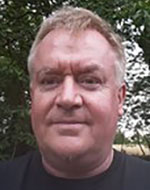 Christian Jacquenet
Christian Jacquenet
Bio: Christian Jacquenet graduated from the Ecole Nationale Supérieure de Physique de Marseille, a French school of engineers. He joined Orange in 1989, and he’s currently the Referent Expert of the “Networks of the Future” Orange Expert community. Until recently, he was the Director of the Strategic Program Office for advanced IP networking within Orange Labs. He is also the head of Orange’s IPv6 Program that aims at defining and driving the enforcement of the Group’s IPv6 strategy and which yielded the deployment of IPv6 networks and services in most European and African Orange affiliates since 2010. He leads development activities in the areas of network automation (including SDN, automated service delivery procedures combined with Artificial Intelligence techniques, intent-based networking), and IP networking techniques. He authored and co-authored several Internet standards in the areas of dynamic routing protocols and resource allocation techniques, as well as numerous papers and books about IP multicast, traffic engineering and automated IP service delivery techniques. He also holds 30+ patents in the areas of advanced home and IP networking techniques.
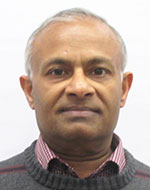 John Kaippallimalil
John Kaippallimalil
Bio: John Kaippallimalil is a Principal Engineer with Futurewei Technologies with extensive experience and expertise in systems and network research, design, and standardization. He is currently working on standards at the intersection of 5G mobile systems, IP networks and edge computing and represents Futurewei in 3GPP SA2, IETF as well as previously chairing ONF’s mobile networks working group. John is currently focused on various aspects of transport, congestion and QoS for AR/VR/XR and real-time media in mobile networks. He has in the past been involved in edge computing and core network overload in 3GPP SA2, led Alcatel’s deployment of IMS functionality in Verizon networks, besides earlier roles that involved designing and developing SS7 TCAP for mobile gateways and Erlang based call signaling in Ericsson’s ATM products. John has several patents, publications, and standards contributions in mobile networking.
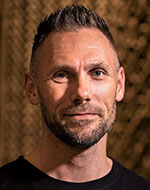 Laurent Ciavaglia
Laurent Ciavaglia
Bio: Laurent Ciavaglia has recently joined Rakuten Mobile as Senior Researcher and Standardization Specialist in the Rakuten Mobile Innovation Studio. He has extensive experience in inventing future network automation technologies with a focus on intent-driven, zero-touch, and AI techniques. He is an active leader and participant in the research and standardization community, for instance, having served as vice-chair of the IEEE ComSoc Technical Committee on Network Operation and Management (CNOM) and serving as co-chair of the IRTF Network Management Research Group (NRMG). He has co-authored over 70 peer-reviewed articles and is regularly invited to give keynotes and attend expert panels.
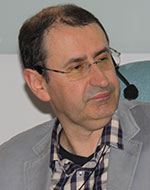 Rui L. Aguiar
Rui L. Aguiar
Bio: Rui L. Aguiar (born 1967) received his Ph.D. degree in electrical engineering in 2001 from the University of Aveiro, where he is currently a Full Professor. He was the founder of the ATNOG research group, and is currently co-coordinating a research line in Instituto de Telecomunicações, on the area of Networks and Services. He has been an advisory for the portuguese govenment on 5G policies . He is a Chartered Engineer, a Senior Member of IEEE, and a member of ACM. He is serving as the Portugal Chapter Chair of IEEE Communications Society and has been serving as Steering Board Chair of Networld Europe, the European ETP representing the telecommunications community. As further community engagement, he has served as Technical and General (co)Chair of several conferences (ICNS, ICT, ISCC, Mobiarch, Monami, NTMS, etc). He is a regular keynote speaker in the future of mobile communications and digital society. He is an associated editor of Wiley’s Emerging Telecommunication Technologies and Springers’ Wireless Networks. He has more than 500 papers published.







